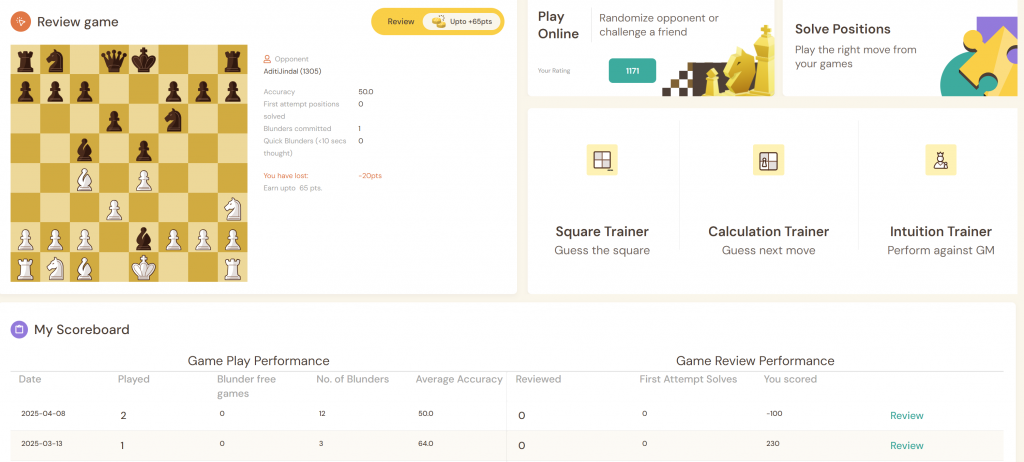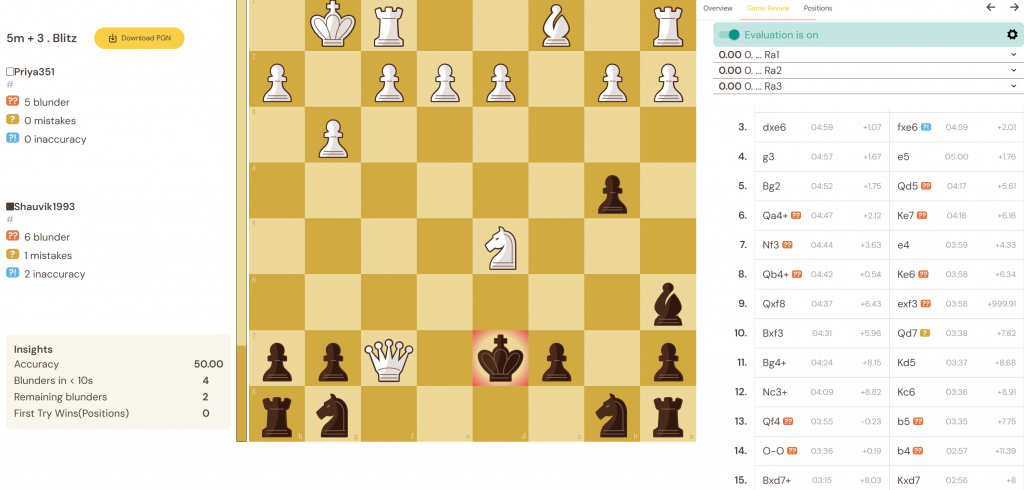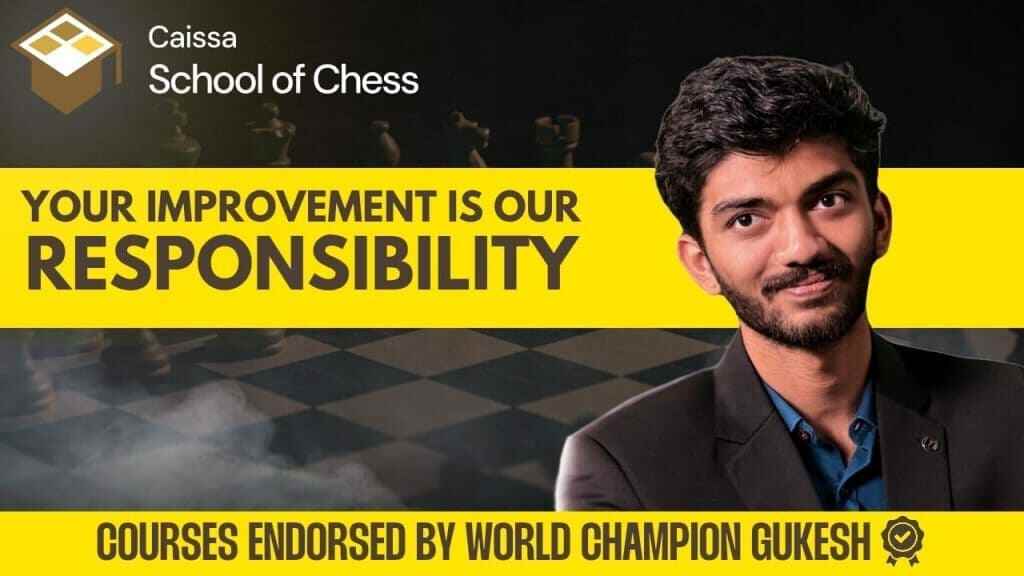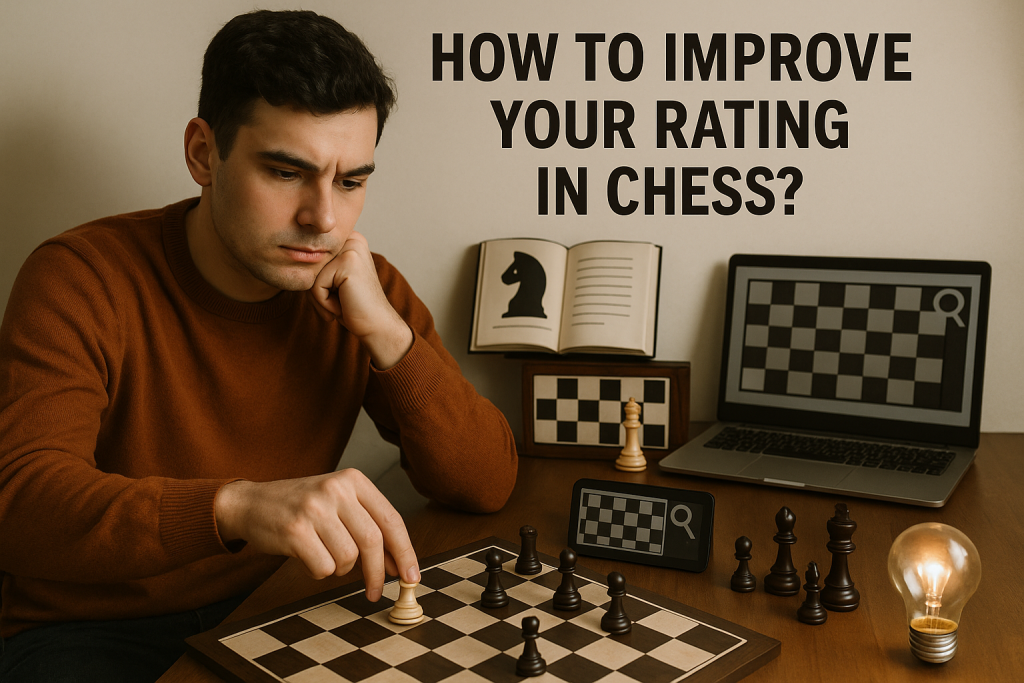Your Elo rating is your chess report card. Developed by Arpad Elo – a physics professor and strong chess player – the ELO Rating system helps compare players’ strengths. The all-time record belongs to Magnus Carlsen, who hit an incredible 2882 Elo in 2014 – the highest any human has ever achieved. Even today, he remains the top-rated player in classical and rapid chess, with only Hikaru Nakamura surpassing him in blitz. So, how to improve your rating? Here are some tips.
- Focus on Tactics to Increase Your ELO Rating in Chess
- Play Mindful Games
- Develop Opening Skills
- Enhance Endgame Understanding
- Improve Positional Play
- Mental Attitude and Strategy
- Practice and Learn from Stronger Opponents
- Embrace Consistency and Enjoy the Journey
Focus on Tactics to Increase Your ELO Rating
To reduce blunders, master piece movement and attack patterns. Carefully assess each move, considering how your opponent’s pieces interact with yours to anticipate threats and exploit weaknesses. Solve tactical puzzles daily to sharpen pattern recognition and calculation. Many platforms offer personalized puzzles, helping you spot tactics faster and react more accurately in games.
After each game, analyze mistakes using platform tools. Reviewing missed tactics and weak moves builds intuition, helping you avoid repeating errors and improve decision-making.
Play Mindful Games
Longer games (rapid or classical) allow deeper calculation and strategic planning, improving decision-making more effectively than fast formats. Bullet games promote rushed, instinctive moves that reinforce bad habits. Reserve them for casual play and prioritize slower time controls for serious development. Many platforms (like Caissa) offer post-game analysis to identify critical mistakes and strong moves. Regular review sharpens your tactical and positional understanding.

Develop Opening Skills
To improve efficiently, deeply study one opening for White and one for Black rather than skimming multiple openings – focus on grasping the strategic ideas and typical plans rather than pure memorization, while analyzing master games in these openings to learn advanced concepts and typical middlegame structures, and consistently track your progress with these openings over time.
Enhance Endgame Understanding
To strengthen your endgame skills, focus first on rook endgames – mastering key concepts like king cutoff techniques and optimal rook placement. Recognize how middle-game tactics influence endgame outcomes, ensuring you transition advantageously or salvage difficult positions. Regularly practice both basic and complex endgame scenarios to build instinctive proficiency, reducing calculation time in critical moments.
Improve Positional Play
To improve your positional play, thoroughly study pawn structures. Each formation creates distinct strategic strengths and weaknesses you must learn to exploit or defend against. Keep your pieces active on the board rather than trading prematurely, as this maintains tactical complexity and pressure while creating more opportunities to capitalize on opponent mistakes.
Carefully analyze how different openings create specific positional structures. For example, compare the French Defense’s closed, asymmetrical pawn chains with the Italian Game’s open and symmetrical formations.
Understanding these differences will sharpen your ability to formulate correct strategic plans in the middlegame. Regularly practice identifying these structures in your games to develop instinctive positional understanding.
Mental Attitude and Strategy
Cultivate a growth-oriented mindset by approaching chess with curiosity – value learning opportunities over immediate results, using each game to explore new ideas. Balance self-assessment with self-compassion. While analyzing mistakes is crucial, avoid destructive criticism by framing errors as essential steps in your development. Embrace chess’s inherent challenges – the intellectual struggle and gradual mastery of complexity provide lasting satisfaction that fuels continuous improvement.
Practice and Learn from Stronger Opponents

Leverage expert guidance by analyzing your games with a coach who can identify patterns in your play, pinpoint weaknesses, and provide targeted improvement strategies. Deliberately challenge stronger opponents to experience advanced techniques and strategic nuances firsthand, accelerating your learning curve. Conduct post-mortem analyses after games (whether with opponents or coaches) to objectively review critical moments, evaluate alternative moves, and extract concrete lessons from each match.
Embrace Consistency and Enjoy the Journey
Increasing your ELO rating in chess requires a combination of consistent practice, strategic learning, and a positive mindset. By focusing on tactics, understanding positional play, strengthening your endgame, and regularly challenging yourself, you’ll develop the skills and confidence needed to reach new heights in chess.
Embrace a guided growth plan and start your journey toward higher ELO ratings in chess with Caissa’s complete, immersive chess experience! Join peer-to-peer learning groups for practice against players of similar strength, engage in regular assignments and practice tournaments, and take advantage of add-on classes to strengthen any weak areas.







